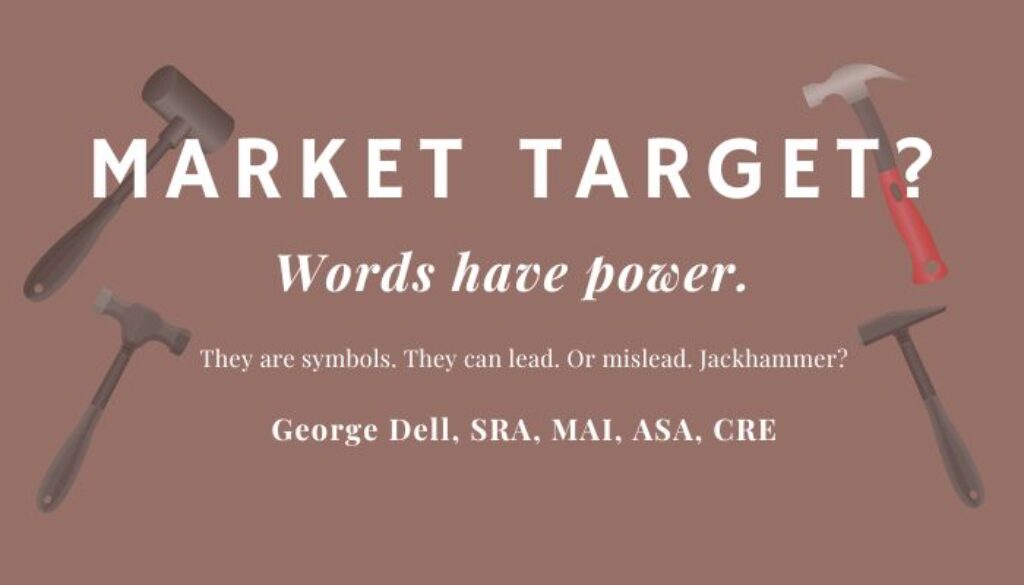Market, the word, is used over 2500 times in The Appraisal of Real Estate. And over 650 times in the current (2021-2024) version of USPAP. “Market” must matter!
But what is it?
“Market” has two main meanings which correspond to the definitions in The Dictionary of Real Estate Appraisal. One is a system to bring buyers and sellers together (like a marketplace). The other meaning is a group of possible buyers and sellers, and their transactions.
“Real estate market” is defined as “buyers and sellers of particular real estate and the transactions that occur among them.”
The problem, again, is words. Does “market” mean the marketplace? The possible buyers/sellers? Their transactions? The system? The neighborhood? The market area? And what does “submarket” mean? To define a “submarket” you need to know what is a market.

Confuscation.
All these meanings, and others, are used in texts, in class workbooks, and in reports. All made to mean what the author wants it to mean. It reminds me of Humpty Dumpty, who said: “When I use a word it means exactly what I want it to mean, nothing more and nothing less.“
What we find is that writers tend to use this word “market” loosely, conveniently, and in a way to support their particular argument or belief at the time. (My English teacher called this “equivocation.) A great way to raise credible believability, while in avoidance of actual logic from actual evidence.
If you say “hammer” when you are nailing a roof rafter, you probably mean “claw hammer.” The problem is that if your reader is upholstering a chair, they need a “tack hammer.”
Words have power. They are symbols. They can lead. Or mislead. Jackhammer!
The careless and ill-defined use of the word “market” can mislead — by conscious intent or by unconscious bias, or by simple carelessness.
What is a market? Is it a place (like an MLS?), or is it a place like a neighborhood, or zip code? Or is it a particular group of actual sales of similar properties?
And can this change our viewpoint on the very definition of market value? Our entire profession is built around this word. The definition of “market value” is built around the results it gets: the “most probable price.” In turn, the results depend on the definition! Is the “hammer” a broken jackhammer”?
How do we resolve this? Do we care?
In Evidence Based Valuation (EBV)©, we attempt to use words precisely.
- CMS – Competitive Market Segment© defines the actual sales of properties similar.
- CMS is defined by the analytical model: the “five dimensions of similarity©”.
- CMS comprises all relevant sales, price indexed to the effective date of value.
Conclusion: The Data Science approach to valuation requires clear meanings of words, as well as concepts and statements/measures of uncertainty. Else we invite bias and subjectivity to our results.
The public trust, equity, and fairness require rigorous underlying methods — and good words.
